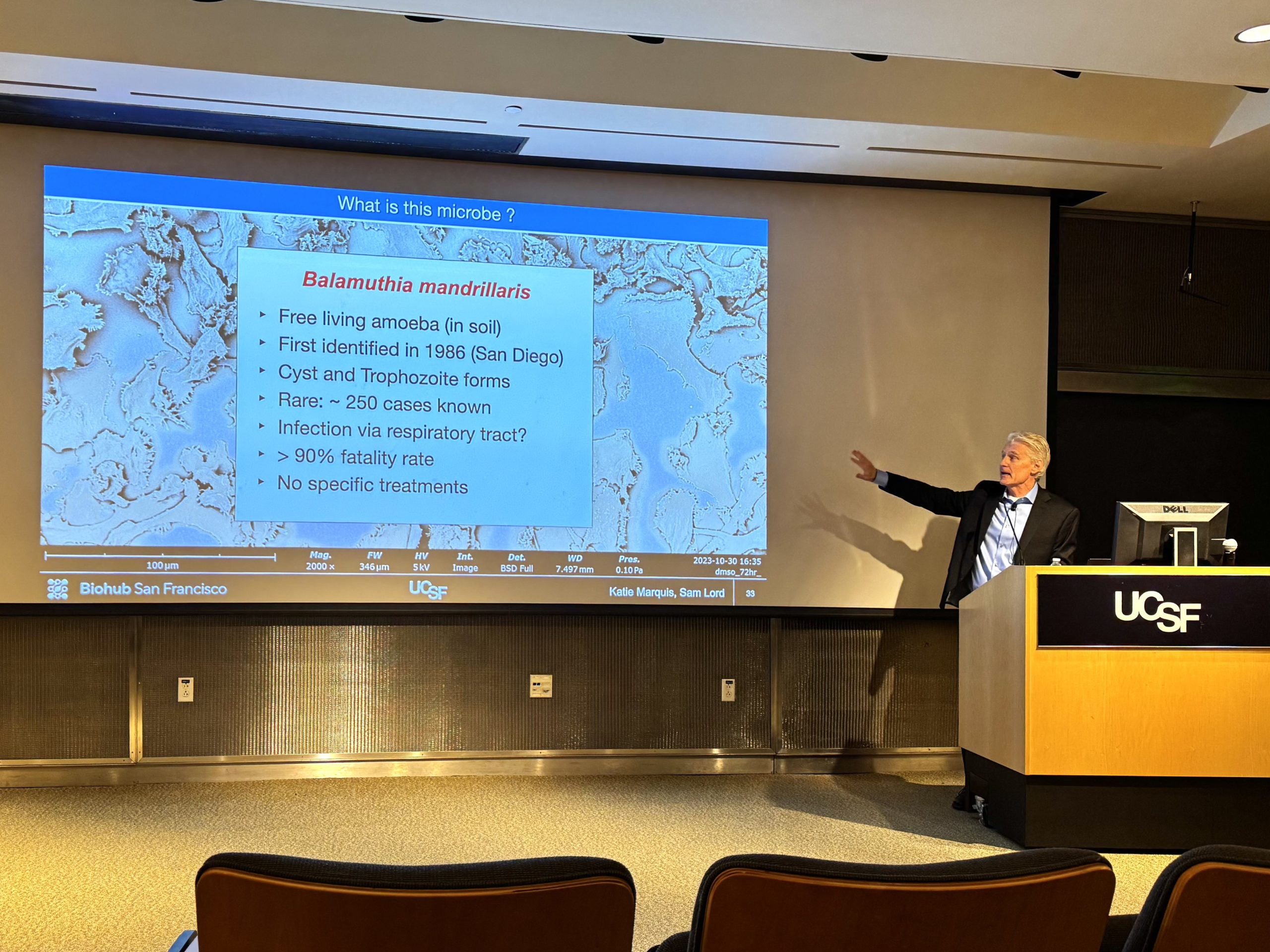
""If you live in our neighborhood, you walk by these laboratories, you probably wonder, what goes on in these laboratories? What do they actually do? Where are my tax dollars at the NIH really going?" said DeRisi at the lecture, held at UCSF's Genentech Hall in Mission Bay. "This is an opportunity to engage with you.""
"DeRisi's lab uses genetic techniques to study infectious diseases. It also identifies viral or other agents behind diseases with unknown causes. Early work in his lab led to the identification of the SARS virus in 2003, and the lab was instrumental in building a free clinical testing lab during the COVID-19 pandemic."
"In his hour-long talk, punctuated by audience questions and more than a few laughs, DeRisi outlined his lab's decade-long journey studying Balamuthia mandrillaris, an organism commonly known as a brain-eating amoeba because it causes severe brain inflammation. It is rare but fatal and often goes undiagnosed."
A UCSF laboratory applies genetic techniques to study infectious diseases and to identify viral or other agents behind illnesses with unknown causes. Early work from the lab identified the SARS virus in 2003 and the lab helped build a free clinical testing facility during the COVID-19 pandemic. The lab conducted a decade-long study of Balamuthia mandrillaris, a rare brain-eating amoeba that causes severe brain inflammation and is frequently undiagnosed and fatal. A public lecture series hosted by the department aims to make scientific concepts accessible to a mixed audience of researchers and non-scientists.
Read at Mission Local
Unable to calculate read time
Collection
[
|
...
]